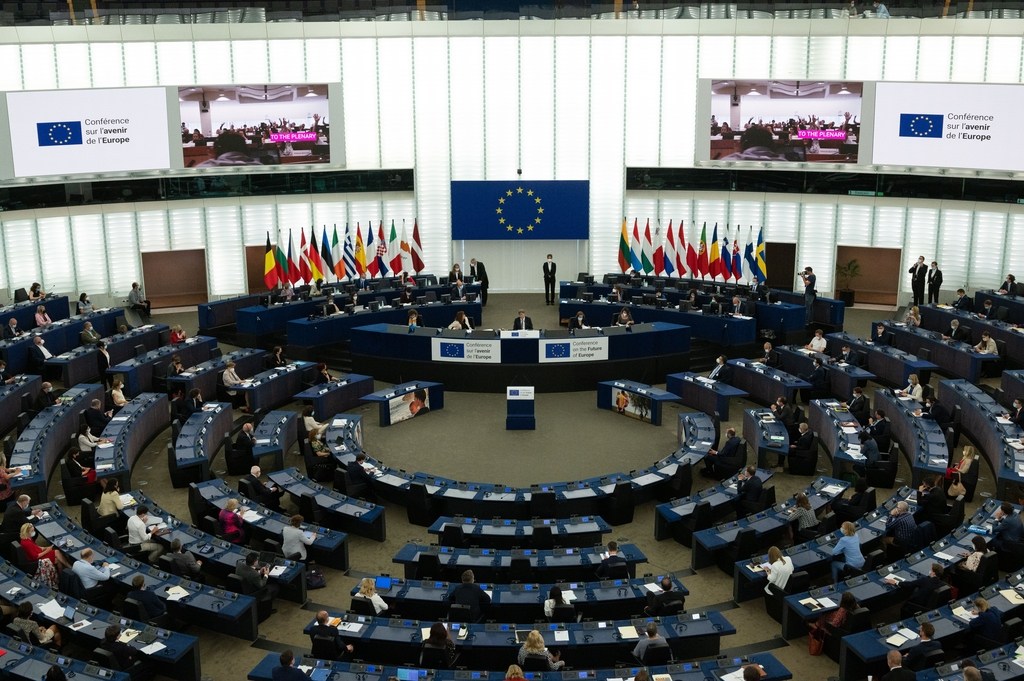A request for publishing two documents related to EU’s integration process 70 years ago has been met by refusal by the Commission despite a complaint to the European Ombudsman.
The two documents are related to Robert Schuman, the French Foreign Minister who was one of the founding fathers of the European Union or rather its predecessor, the Coal and Steel Community. One document is the so-called Charter of Community, which was signed by the six founder states when they adopted the Treaty of Paris on 18 April 1951.
The other document is what Schuman called the “exordium”, a brief introduction or summary that situated the famous declaration named after him in a geopolitical and historical context and which was included in French Cabinet text.
“Schuman said that these documents provided a defence for citizens’ human rights against bureaucracy, technocracy, tyranny and totalitarianism,” explains David H Price, a Brussels-based journalist and historian, who also is editor of the Schuman Project. He has been asking the European Commission and the Conference on the Future of Europe (CoFoE) to publish the two documents on their websites as input to the debate on Europe's future.
The issue was raised by him last year at the 70th anniversary of the Treaty of the Paris when the CoFoE was launched by the Commission, the Parliament and the Portuguese EU-presidency representing the Council. The world has changed since the treaty, which is not even in force any longer, but the EU can always learn from its founding fathers, was their common view.
“We can certainly publish all basic papers on our platform,” said MEP Guy Verhofstadt, co-chair of the Executive Board of the conference.
The Secretariat-General of the Commission stated in a letter in mid-December last year that, “The European Commission takes care to ensure publication of the European Union treaties and other legal acts so that they are available to the EU citizens and everyone interested”. That said, it does not intend to publish the two documents.
It says that the introduction of the Schuman declaration is an opening statement and not an integral part of the declaration, and therefore it is not published. As regards ‘the Charter of the Community’, that accompanied the signing of the Paris Treaty, it is not a treaty but a political declaration, according to the Commission.
The European Ombudsman has received a complaint against the refusal to publish the two documents related to the European integration process. In a letter to the Commission in October last year, it wrote that it was not clear from a previous Commission reply, what relevance the nature of the document has in relation to the Commission’s decision not to publish them.
“We would suggest that you now provide a clear reply to the above issues and inform us when it is done. We would be grateful if you could send your reply to the complainant by 17 November 2021. This inquiry concerns the failure to provide the complainant with sufficiently clear explanations regarding the matter.”
Asked by The Brussels Times about the documents at today’s press conference, the chief spokesperson replied that the Commission has already replied without explaining why the request for publication was denied.
A media officer for the Ombudsman commented that its inquiry is still on-going and declined to comment. Asked if it was common that the Commission is late in replying to complaints, she replied that it happens occasionally. “It tends to reflect the fact that it’s a large administration with many tasks at hand. Our overall aim, as with any inquiry, is to reach a satisfactory and fair outcome based on all the facts.”
The European Ombudsman warned on Sunday that the debate on EU’s future should not be an exercise in ‘citizen-washing’.
Speaking in Strasbourg at the plenary of the CoFoE, Emily O’Reilly, the European Ombudsman for the second term, talked about the need for tangible results. “The idea to hold this conference was rooted in belief about the EU’s capacity to listen and learn from the European public,” she said.
“Some clear themes have already emerged, with proposals for greater EU action on issues such as climate change and the rule of law, as well as a demand for more transparent decision making. However, without clear action on these ideas, the conference may be seen simply as gesture politics, a hollow exercise in ‘citizen-washing’."
“While voting is the most important act of citizen engagement, this conference should also be an important part of how citizens get involved in the democratic life of the EU,” she added.
The Ombudsman institution originated in Sweden in 1809 and has spread around the world in waves, especially after the second world war. Now there are around 130 ombudsman institutions around the world, in different models and with new tasks, such as data protection, access to public information, protection of human rights and the promotion of good public administration.
M. Apelblat
The Brussels Times

